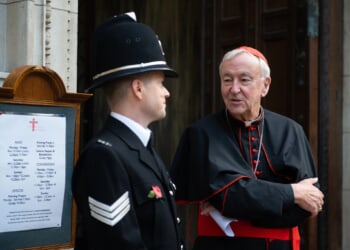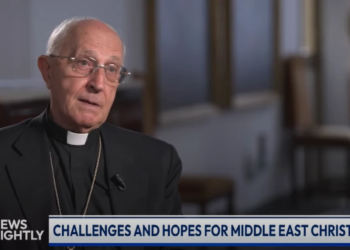Edward Newson is a graduate politics student.
Last weekend, Keir Starmer finally caved to pressure following Baroness Casey’s child sexual abuse report, the findings of which advised that a national inquiry be launched into the grooming gangs scandal that has rocked towns and cities across Britain for over 20 years. This is great news for those who advocated action, despite being accused of far-right bandwagoning. It also serves as the best kind of vindication for those labelled as racists for expressing sympathy for those who were groomed such as Samantha Smith.
While encouraging, getting the government to launch a national inquiry is only half the battle. It is the duty of those involved to ensure that every person who was part of a grooming gang or helped obstruct justice is held accountable for their actions. The public demands full accountability. Should the government ignore the race-based aspect of this scandal, it will only highlight how this problem came into being in the first place.
People can expect the report to cover failings in social services and police forces. I struggle to believe, however, that it will name and shame specific individuals who played key parts in widening and deepening the scandal. This isn’t acceptable. This isn’t what the public is after.
As Director of Public Prosecutions from 2008–2013, Keir Starmer has a personal stake in the outcome of this inquiry, and it is therefore in his best interests not to play the blame game. If individuals are singled out, the chances of it looking bad on him or his MPs are high. One MP, Shaun Davies, the ex-leader of Telford and Wrekin council, rejected calls for a local inquiry in 2016, which eventually found over 1000 victims.
If institutions, rather than individuals, face charges, the review fails the thousands of young girls who were abused by grooming gangs across Britain.
This is very likely to be the case though. Previous reports, such as those from Casey and Jay, pinned the blame on institutions rather than the people within them, showing a tendency to make broad statements about institutional failings while refusing to come to terms with more local causes and problems. Judging from previous inquiries, it is also likely that the report won’t tell the full story on issues such as institutional cowardice around race relations and problems surrounding cultural relativism. In blunt terms, the national grooming gangs inquiry must not shy away from acknowledging the disproportionate involvement of British Pakistani men. Councils and local inquiries have ignored this reality before; it must not be ignored this time.
The Labour Party has a record of nervousness when discussing immigration, race and culture, suggesting that it is unlikely to make sizeable policy changes based on the report’s findings. Recently they have gained a reputation of dismissing MPs who put their head above the parapet. Rosie Duffield opposed the Labour line on transgender issues and resigned the whip after a hounding by Starmer and other MPs. Sarah Champion highlighted concerns about Pakistani grooming gangs in her Rotherham constituency and was forced out of Corbyn’s shadow cabinet. A claim that has since been backed up by the Quilliam Report on Grooming Gangs.
Councils run by Labour also have a poor record around grooming gangs and their cover-ups. Yorkshire councils such as Rotherham, Huddersfield, and Halifax? Labour-run. Oxford City Council? Labour. Telford, Oldham and Rochdale? All Labour run. If the report seeks to give the victims a shred of relief, it will find and investigate all those who ignored grooming gangs.
This national inquiry should look to tread sensitively around this difficult issue, aiming not to enflame community tensions. However, this is not the same as what has happened historically where difficult parts of it are ignored or briefly glossed over. It should call for individual accountability, ensuring that all involved face the full force of the law. It should also have transparent data on both perpetrators and victims, ensuring that cultural and religious norms are scrutinised if necessary. Furthermore, police and council whistleblowers should be safeguarded to ensure that no intimidation or bribery takes place to obstruct the full truth.
Real justice should always be about confronting uncomfortable truths, not just glossing over them. In the past, inquiries have been on small scales with limited budgets. The hope for this national inquiry is that those involved will finally have the workforce and budget necessary to fully investigate this dark stain on Britain’s recent past.
To stop faith in the British justice system falling even further, those involved must face justice. No matter the political cost.


![Former Bravo Star Charged After Violent Assault Using a Rock-Filled Sock in Tennessee Walmart [WATCH]](https://www.right2024.com/wp-content/uploads/2025/07/Former-Bravo-Star-Charged-After-Violent-Assault-Using-a-Rock-Filled-350x250.jpg)




![Karoline Leavitt Levels CNN's Kaitlan Collins and Other Legacy Media Reporters [WATCH]](https://www.right2024.com/wp-content/uploads/2025/07/Karoline-Leavitt-Levels-CNNs-Kaitlan-Collins-and-Other-Legacy-Media-350x250.jpg)
![Man Arrested After Screaming at Senators During Big Beautiful Bill Debate [WATCH]](https://www.right2024.com/wp-content/uploads/2025/06/Man-Arrested-After-Screaming-at-Senators-During-Big-Beautiful-Bill-350x250.jpg)

![Illegal Alien Walked Free After Decapitating Woman, Abusing Corpse for Weeks [WATCH]](https://www.right2024.com/wp-content/uploads/2025/07/1753013138_Illegal-Alien-Walked-Free-After-Decapitating-Woman-Abusing-Corpse-for-350x250.jpg)






